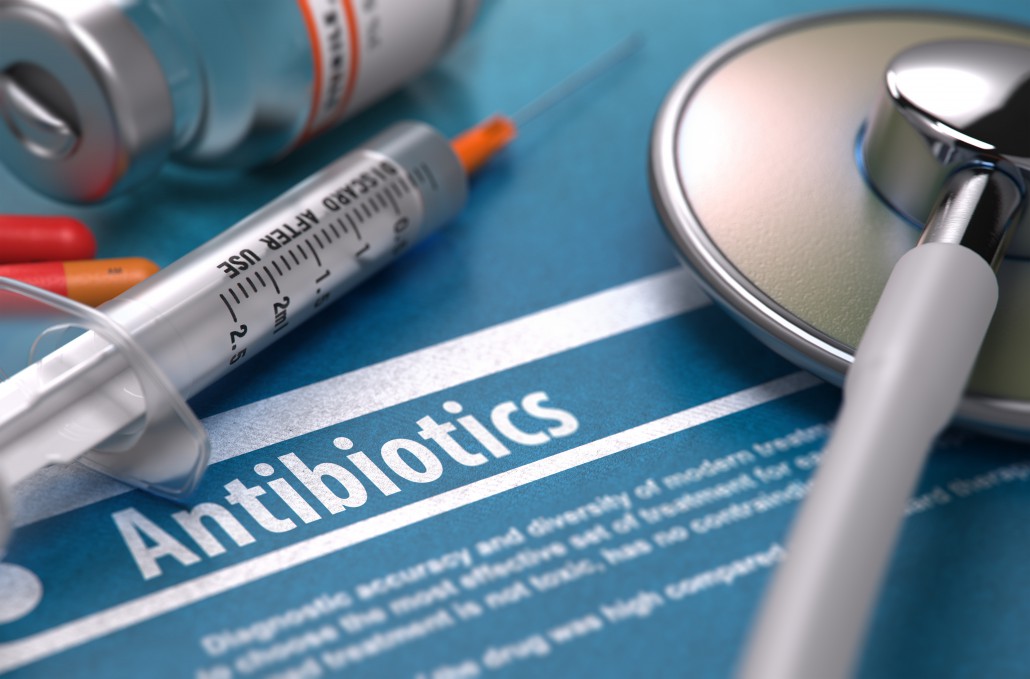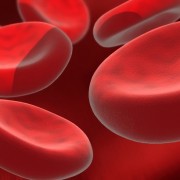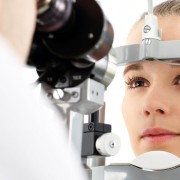10 Golden Rules of Antibiotics Use
The first natural antibiotic, penicillin, was discovered in 1928. Since then antibiotics have been annually saving thousands of human lives. However, nowadays many people are used to rely on the pills whenever they feel any physical distress, forgetting that medications should be used with caution. Medications are able not only to cure, but also to cause problems when taken improperly. That is why in most countries antibiotics are available only with a doctor’s prescription. If you take care of your health, approach each situation thoughtfully whenever you need treatment, and everything will be alright. Knowledge and understanding of the topic will help you to act right in different situations.

1. Learn What Antibiotics Are and Use Them in Proper Cases
Antibiotics, or antibacterials, are used for destroying and slowing down the growth of bacteria. The doctors prescribe these powerful drugs to treat diseases of bacterial origin, when the immune system fails to cope with harmful bacteria on its own. They are usually taken orally (by mouth), but may also be applied directly to the affected body part or administered by injection.
There are two ways how antibiotics work:
- by killing the bacteria, interfering with the formation of its cells wall or contents (bactericidal action),
- by stopping bacteria from reproducing/multiplying (bacteriostatic action).
There are also two types of antibiotics:
- narrow-spectrum – used against a few types of bacteria (aerobic or anaerobic),
- broad-spectrum – effective against a wide range of infections.
In some situations antibiotics are used not for treatment purpose, but as a prophylactic measure, for example, before surgery (orthopedic, bowel surgery, etc.).
It is important to distinguish bacterial and viral infections, because antibiotics are helpless against colds, sore throats, most coughs, and flu (i.e., most upper respiratory tract infections) that are caused by viruses. So, first of all, it is necessary to figure out whether the problem is caused by a virus or a bacterium.
For this purpose, contact you doctor. He/she will prescribe you the right antibiotic (if necessary) based on the suspected bacteria, the site of the infection, previous antibiotic usage, and some other factors.
2. Abstain From Unjustified Use of Antibiotics
It is important to take into account potential side effects and not to take antibiotics without need. Do not try to treat disorders with antibiotics if they are not effective against these disorders, and do not overuse them as prophylaxis rather than treatment.
Overuse is a real problem today, since it is one if the reasons why there are more and more bacterial infections that are resistant to antibacterial drugs. Some people die as a result on antibiotic resistance, when antibiotics turn out to be ineffective against their infection. Such resistance may be caused, for example, by taking improper (insufficient) quantities of the drug, non-lethal for the microbes. If the medication does not kill the viruses, it makes them even stronger. In such situations treatment with more powerful medications may succeed, but sometimes even new/experimental drugs don’t help against resistant viruses.
This also does not mean that it’s good to exceed the dose of antibiotics, as it is dangerous as well. That is why it is so important not to take antibiotics upon one’s own hook, but to ask the doctor to prescribe the right medication and the right dose of it.
3. Be Aware of the Possible Side Effects
The most common adverse effects caused by antibiotics are:
- Feeling sick;
- Colitis or diarrhea (older people are at higher risk);
- Vomiting;
- Nausea;
- Fungal infections of the digestive tract, mouth, or vagina.
The following side effects happen more rarely:
- Sensitivity to sunlight (can be caused by tetracyclines);
- Abnormal blood clotting (a possible aftereffect of cephalosporins);
- Blood disorders (because of trimethoprim);
- Formation of kidney stones (because of sulphonamides);
- Deafness (because of aminoglycosides and erythromycin);
- Convulsions (can be caused by high doses of penicillins).
Another problem some patients may face is an allergic reaction to antibiotics. The symptoms may include difficulty with breathing, swelling of the face and tongue, skin rashes, angioedema, fever. Hypersensitivity reactions (immediate or delayed) may also take place; they are more common after injections. It is very important to inform the doctor about your allergic reaction – the consequence can be serious (in rare cases – an anaphylactic shock).
4. Observe Precautions in Case of Specific Health Conditions or Taking Other Medications
The following patients should use antibiotics with extreme caution:
- pregnant or breastfeeding women,
- people with reduced kidney or liver function.
The patients should also be aware that caution should be exercised in case they take other medications or supplements. It is important to inform the doctor about them, to prevent unwanted interactions with antibiotics. For example, some antibiotics can disrupt the effectiveness of oral contraceptives.
You may also like: When Do Antibiotics Help and When Don’t They?
5. Take a Full Course – Do Not Interrupt the Treatment Abruptly
It is important to complete the whole course of prescribed medications to make sure that the infection does not come back or does not become resistant to the treatment in future. The bacteria that have been exposed to the antibiotic must not survive, because if they survive, they will become stronger and it will be hard or impossible to defeat them the next time.
So, even if an individual feels better or the symptoms are gone, he or she should not interrupt the treatment before the course is completed. Length of the course should be determined by the doctor on the basis of the necessary examinations. Make sure all the harmful bacteria are killed and cannot multiply further, so that the inflectional disease does not relapse.

6. Adjust Your Diet While Taking Antibiotics
If you want to see the results soon, follow the instructions correctly – it is crucial. Some antibiotics need to be taken on an empty stomach; this means it is better to take them at least one hour before or two hours after meal. The others require abstaining from certain foods. If you are taking tetracyclines, refrain from dairy products for this period, because they may affect the medication’s absorption.
7. Avoid Mixing Antibiotics with Alcohol
Alcohol may interact not only with other medications, but with alcohol as well. It may cause adverse effects like dizziness, sleepiness, racing heart rate, diarrhea, etc.
Not all antibiotics interact with alcohol, and here is the list of those that do:
- Metronidazole;
- Griseofulvin;
- Ceftriaxone.
People taking metronidazole should not consume alcohol simultaneously or within three days, as it may lead to headaches, upset stomach, vomiting, nausea, flushing. Simultaneous alcohol consummation with ceftriaxone or griseofulvin may cause similar reactions.
Even if your antibiotics do not interact with alcohol, perhaps it is better to abstain from it until your treatment is complete and you feel better, because alcohol affects overall health in a negative way and reduces ability of the body to heal from infections. It is a good idea to drink plenty of pure water instead.
Always read the warning label on the antibiotic to be informed whether you are allowed to combine it with alcohol, different products or other medications.
8. Take Probiotics to Support Your Microflora
When you take antibiotics, the bacterial ecosystem in your intestines gets under assault. In such situation probiotic supplementation will help you to handle the treatment with fewer losses.
Unfortunately, antibiotics damage the beneficial bacteria in patients’ guts. People using them often have impaired bacterial functioning or diarrhea. In some cases, bad bacteria become powerful in the intestines and cause a severe diarrheal infection. Even if no acute conditions occur, the ecological changes in the intestines can have long-term side effects on health.
To reduce the risk of such problems during and following antibiotic treatment, it is recommended to take probiotics in supplements – strains of yeasts or bacteria beneficial for human health. This measure can prevent or lessen negative consequences, keep the pH level more hospitable to human-friendly microflora population, help good bacteria out-compete and crowd out the bad bacteria, as well as replace the organisms killed by the drug with favorable species.
9. Use Specific Populations of Friendly Bacteria
It is ineffective to just buy any probiotic in the pharmacy. The supplement should be chosen properly, taking into account the specific strain and species of probiotic, the dose, the duration of treatment. It is not enough to just eat more yogurt or to drink cultured buttermilk. The patient has to address his specific needs when choosing the probiotic strain.
It is also important to make sure the probiotic organisms are alive. For example, if it is a probiotic powder, don’t mix it with boiling water of food in case if the product isn’t heat resistant. The bacteria should not be killed before reaching the destination. Also, pay attention to expiration dates. Refrigerated probiotic products should be kept refrigerated until use. It is also recommended to prefer most reputable brands and manufacturers, which can afford providing adequate quality control.
Once your course of antibiotics is complete, do not stop to take probiotic supplements at once. Your microbial ecosystem is at risk for several weeks or even months after the treatment. Do not disregard the recommendation of taking care of your intestinal bacterial community for some time, till it consolidates its status quo. Besides taking probiotic supplements, consume fermented or cultured foods as well. Choose diverse, nutrient-dense, probiotic-rich drinks and foods. Do everything you can to create favorable conditions for friendly microflora.
10. Be Attentive and Coordinate Your Treatment with a Qualified Doctor
If your health condition requires antibiothic therapy, make sure your doctor is qualified and experienced enough, to be able to prescribe adequate treatment, without giving you antibiotics without need and at the same time providing a therapy long enough for full recovery.
Please, do not hesitate to ask your doctor/pharmacist questions about the antibiotic prescribed and your therapy regimen, as it is important to make sure that you have understood all the recommendations right. The treatment results depend on how properly you follow these prescriptions.
In case the antibiotic therapy is over, but your condition has not improved or has improved incompletely, inform your doctor or pharmacist. It is possible that he/she will decide to prolong the therapy for a few days more or prescribe other treatment.
Your Canadian Pharmacy Team www.mycanadianpharmacyrx.com/our-team










